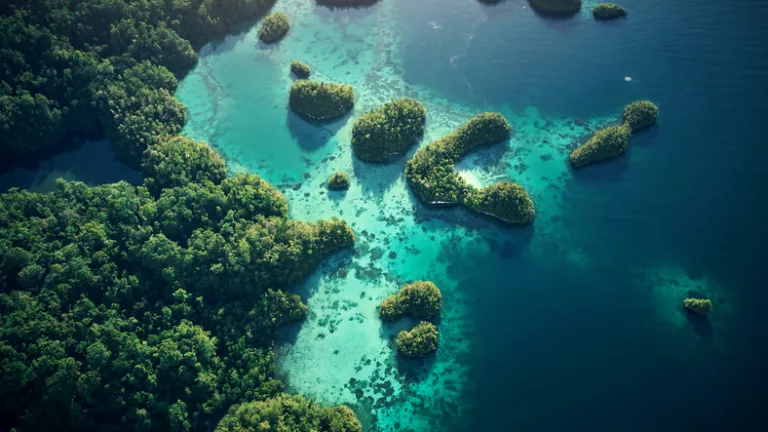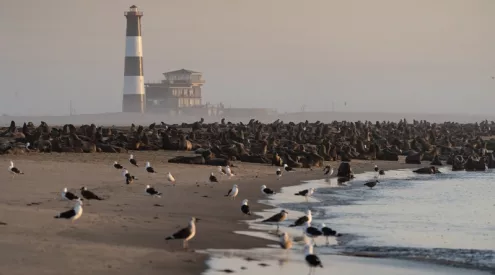Sustainable tourism extends beyond the simple acts of reusing towels, using LED lighting, and sourcing locally produced food in hotels. In the realm of coastal sustainable development, the impact of tourism remains a topic of debate, as it possesses both the potential for negative consequences and the power to bring about positive change. Travel experiences have proven to be transformative for many, fostering cultural tolerance by replacing misconceptions with knowledge. In some cases, tourism can even play a role in safeguarding cultural heritage, social harmony, and ecological equilibrium.

Picture: Getty Images
Tourism’s economic and environmental impact
The tourism industry has rapidly become the world’s largest global business, employing one out of every twelve individuals and contributing $6.5 trillion to the global economy. Coastal areas, with their unique natural systems and resources, attract over 180 million tourists annually, along with the demands of local residents. This places significant strain on the environment and the delicate coastal ecosystems. Moreover, tourism affects the food chain and contributes to food wastage, as noted by the National Climate Assessment 2014 Global Change Report and the United Nations Environment Programme (UNEP).
Preserving marine resources for sustainable tourism
Preserving local marine resources emerges as a critical need in promoting sustainable coastal tourism. By protecting artisanal fishing communities and ensuring subsistence fishing, tourism can support environmental preservation and sustainable economic development. One effective strategy is the creation and expansion of marine protected areas (MPAs). Well-managed MPAs can serve as tourist attractions, offering visitors the opportunity to witness endangered species, coral reefs, and picturesque beaches. The tourist fees can then be channelled towards conservation efforts and supporting local livelihoods.
Empowering communities through self-governance
A community-based approach known as “community self-governance” empowers local people to take ownership and become stewards of the environment. They can develop policies and programs to protect fisheries, locally-owned small businesses, and ocean resources with appropriate assistance.
Travellers also play a crucial role in supporting sustainable practices. Engaging in responsible tourism involves being mindful of the impact on communities and environments being visited. Researching and choosing resorts, hotels, and areas that prioritize sustainability can make a significant difference. Various organizations, such as The Ocean Foundation, offer programs that promote responsible travel and encourage travellers to give back to the communities they visit.
The coasts and oceans hold a special place in the hearts of many, offering stress relief, wellness, inspiration, and recreation. However, preserving their health requires our careful attention and care. If the oceans suffer, so do we. Therefore, promoting sustainable tourism and responsible travel practices is essential to ensure the well-being of our natural treasures for future generations.
ALSO READ: Tswalu one of twelve properties worldwide to receive Global Ecosphere Retreat status

















